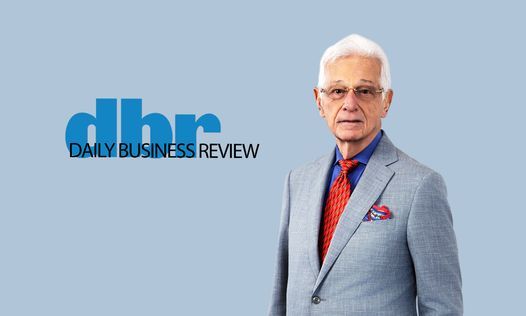Client May Vacate Default Judgment Caused by Lawyer’s Neglect Even Though Lawyer Was In-House Counsel
Lawyers for the Profession® Alert
Lawyers for the Profession® Alert | 3 min read
May 18, 2010
Gutierrez v. G & M Oil Co., Inc.,___Cal. Rptr. 3d ___, 2010 WL 1818904 (Cal. App. 4th Dist. 2010)
Brief Summary
The California Court of Appeal, Fourth District, held that a statute which allows a client to vacate a default judgment if the default was caused by negligence of the client’s lawyer applies to in-house lawyers for companies, and that it applies even if the lawyer also is an officer.
Complete Summary
An in-house attorney neglected a lawsuit against his company, and the plaintiff in that case eventually obtained a default judgment. The in-house lawyer did not inform anyone at the company of the lawsuit until the default judgment was entered. Upon learning of the suit, the company’s CEO retained outside counsel, who moved to vacate the judgment based on, inter alia, a declaration by the in-house attorney in which he took sole responsibility for neglecting the matter. This motion was based on Cal. Civ. Proc. Code § 473, which, among other things, requires the court to vacate a default judgment against a client if the client's attorney submits a sworn affidavit attesting to the fact that the lawyer’s neglect led to the default. Plaintiff argued that Section 473 does not apply to in-house attorneys, and that even if it does, it does not apply to in-house lawyers who are also corporate officers. The California Court of Appeal, Fourth District, ruled in favor of the company and vacated the default judgment.
The court first held that Section 473 applies to in-house lawyers. It acknowledged that some court of appeal decisions had refused to vacate an order under Section 473 unless the client was totally innocent. Under this line of cases, plaintiff argued that the client was not totally innocent because the in-house attorney's conduct was the client’s conduct. But the court declined to impute the in-house lawyer's conduct to the company. The court based this conclusion on the general proposition that in-house lawyers have an attorney-client relationship with an independent third party (the employer) which is akin to the relationship that outside counsel have with their clients.
The court gave three reasons for treating the in-house lawyer the same as outside counsel under Section 473. First, the in-house attorney was acting as a lawyer for the company. Second, nothing in Section 473 suggested that companies which elect to use in-house instead of outside counsel should be at some disadvantage vis-a-vis the negligence of their attorneys. And third, both in-house and outside attorneys have the same ethical and fiduciary duties to their clients.
The court then held that the in-house lawyer’s status as a corporate officer did not alter the result. Section 473, the court pointed out, does not differentiate between officer attorneys and non-officer lawyers. Moreover, the court noted that in any case where an attorney is responsible for a default, that responsibility, by necessity, involves acting as a lawyer and not as an officer.
Significance of Opinion
This opinion is exceptionally important for businesses that employ in-house counsel, protecting them like any other client from their lawyer’s negligence in the context of a default judgment. The decision is consistent with a line of California cases which have, in various contexts, treated the in-house attorney-client relationship as one between a lawyer and independent third party. The court made clear that, absent statutory language to the contrary, there is little reason to differentiate between legal services provided by in-house counsel and those provided by outside counsel.
This alert has been prepared by Hinshaw & Culbertson LLP to provide information on recent legal developments of interest to our readers. It is not intended to provide legal advice for a specific situation or to create an attorney-client relationship.
Related Capabilities
Featured Insights

Employment Law Observer
Dec 8, 2025
12 Days of California Labor and Employment: 2025 Year in Review

Press Release
Dec 4, 2025
Hinshaw Recognized by the Leadership Council for Legal Diversity as a 2025 Top Performer

Press Release
Nov 25, 2025
Hinshaw Legal Team Secures Summary Judgment in Gas Station Injury Case

Press Release
Nov 18, 2025
Hinshaw Releases the Third Edition of Duty to Defend: A Fifty-State Survey

In The News
Nov 13, 2025
A Profile on Neil Rollnick: After 57 Years in Practice, He Has No Plans to Retire

Press Release
Oct 22, 2025
Hinshaw & Culbertson LLP Launches New Website and Refreshed Brand






